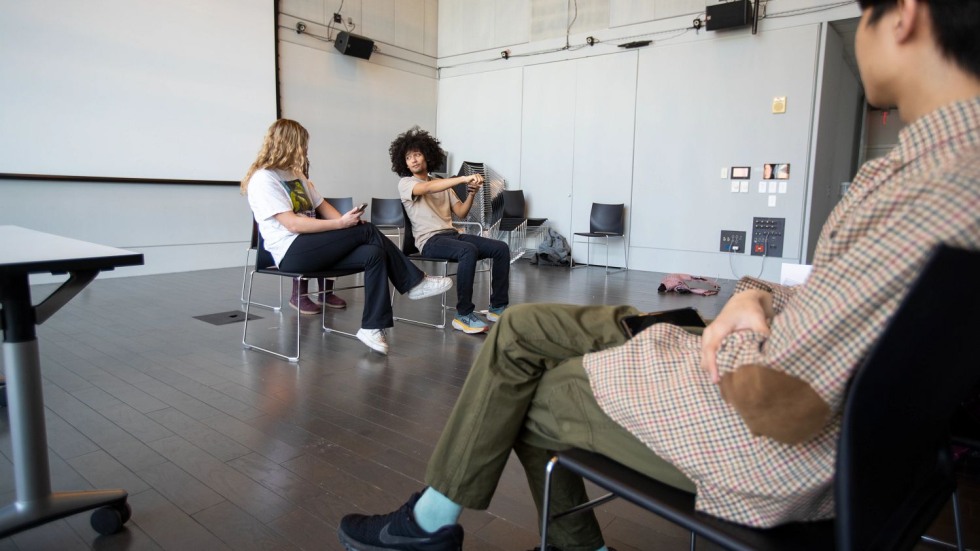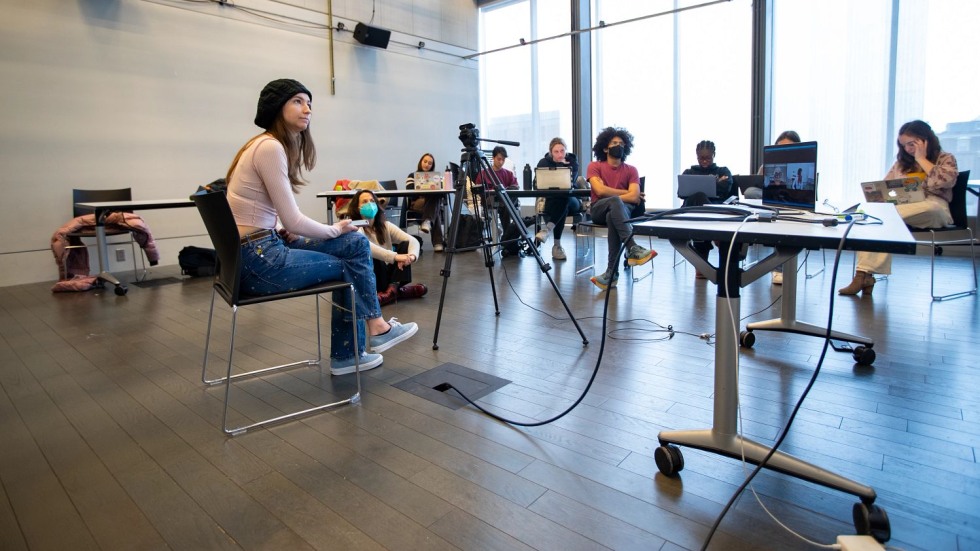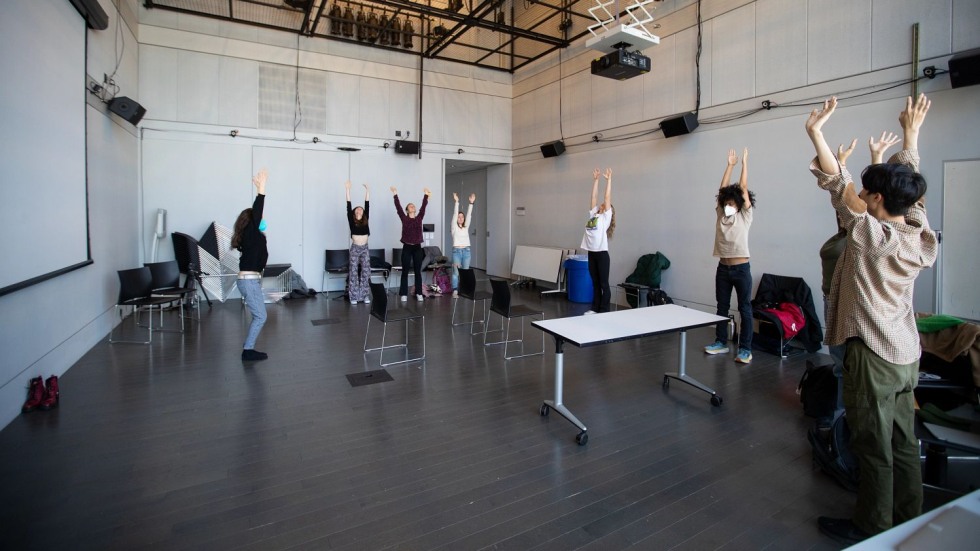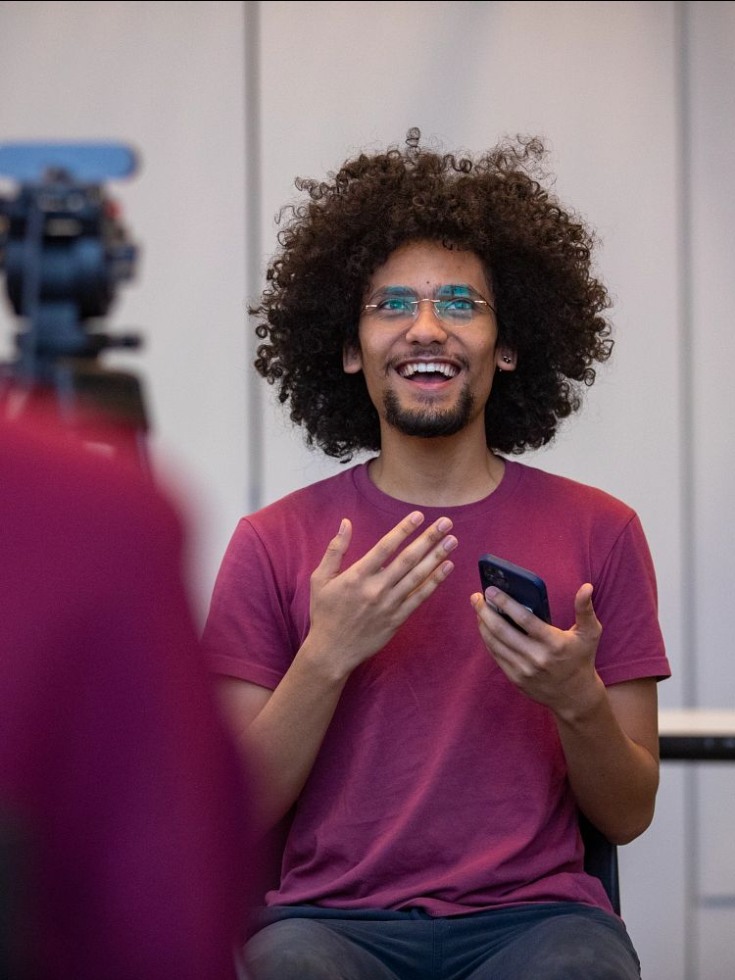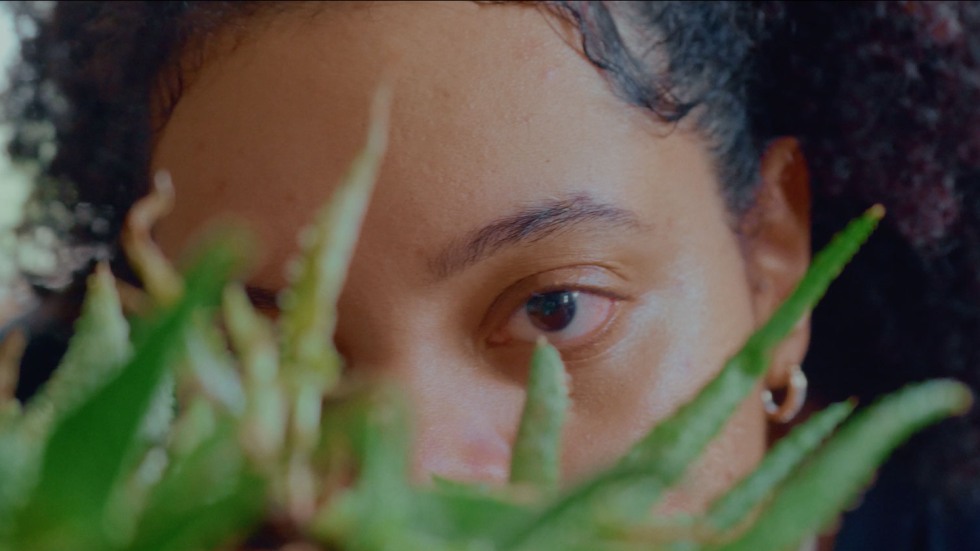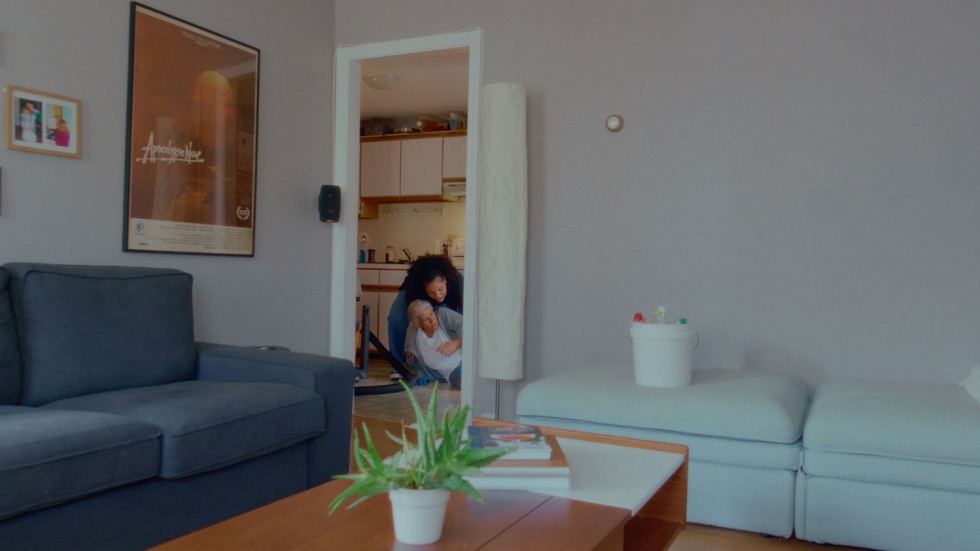PROVIDENCE, R.I. [Brown University] — Throughout her time at Brown, Stephanie Stiles has taken courses in acting, directing, screenwriting and cinematography. But until recently, the rising senior and aspiring television writer never had a formal opportunity to tie all that knowledge together.
“I’ve picked up so many valuable filmmaking skills throughout my time at Brown, but I never had the resources to write, direct and produce my own films,” Stiles said. “I wanted to take a course that gave me the tools to oversee a filming project from start to finish, that pushed me to execute my creative vision, and that gave me a deadline.”
In Spring 2023, she found that course — Script to Screen: Scene Work.
Taught once a year by Assistant Professor of the Practice Laura Colella, a Providence-based writer and director, the course gives eight undergraduate students a rare opportunity to bring their own screenwriting to life in collaboration with professional actors. Throughout the semester, students work with Colella and other lauded artists to transform their rough-draft scripts into finished scenes, all of them featuring professional actors, many from Rhode Island and the surrounding region, hired with funding from Brown Arts Institute.
“Making films is not easy, and oftentimes it is very expensive,” Stiles said. “This class gave me an opportunity to work with paid actors I wouldn’t have been able to hire on my own — the kinds of actors who are so good that they end up improving the scene with their perspectives on the script and the production.”
Colella said the literary arts course aims to serve as a two-way bridge, not only introducing screenwriting students to the possibility of directing their own work but also allowing them to investigate how acting, directing and workshopping material with actors can inform their writing. Colella guides students as they direct one another, then outside actors selected by the students from a pool of submitted self-tapes, as they workshop, rehearse and film their scenes.
